Prep
Week 6, Term 2

Prep
Week 6, Term 2
INFORMATION
🎒Kiss and Drop
As we settle into the middle of Term 2, we would like to see our students building their confidence and independence by walking themselves into the classroom each morning. This simple daily routine helps children develop important skills, such as unpacking their own school bag, organising their belongings and calmly settling in for the day.
We kindly ask that parents say their goodbyes at the door and allow students to enter the classroom on their own. Having a calm, consistent routine at this busy transition time helps all children feel settled and ready to start their day. Rest assured, we are always inside to warmly greet your child, lend a helping hand and ensure they begin their morning with a positive mindset.
🗣️ Show and Share
Topic: Something special about Country that I live on
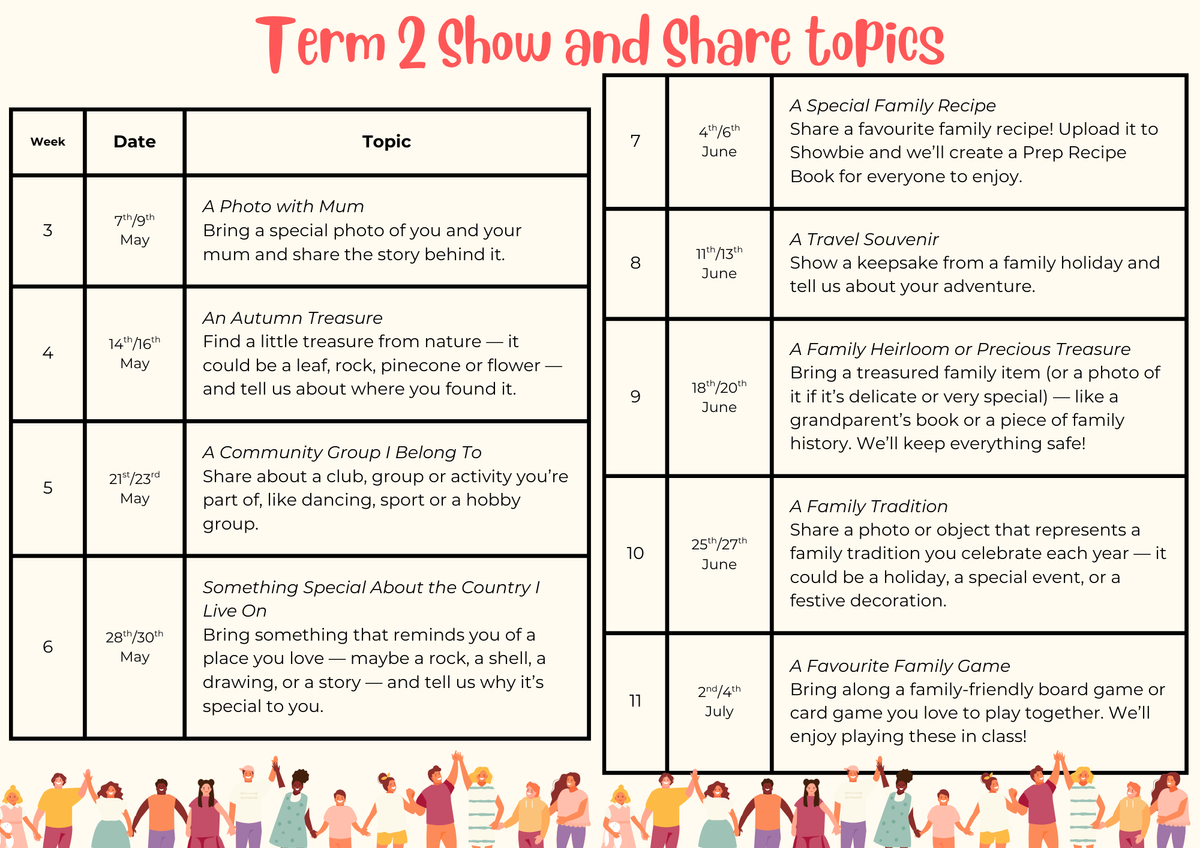

🎨 Specialist timetable
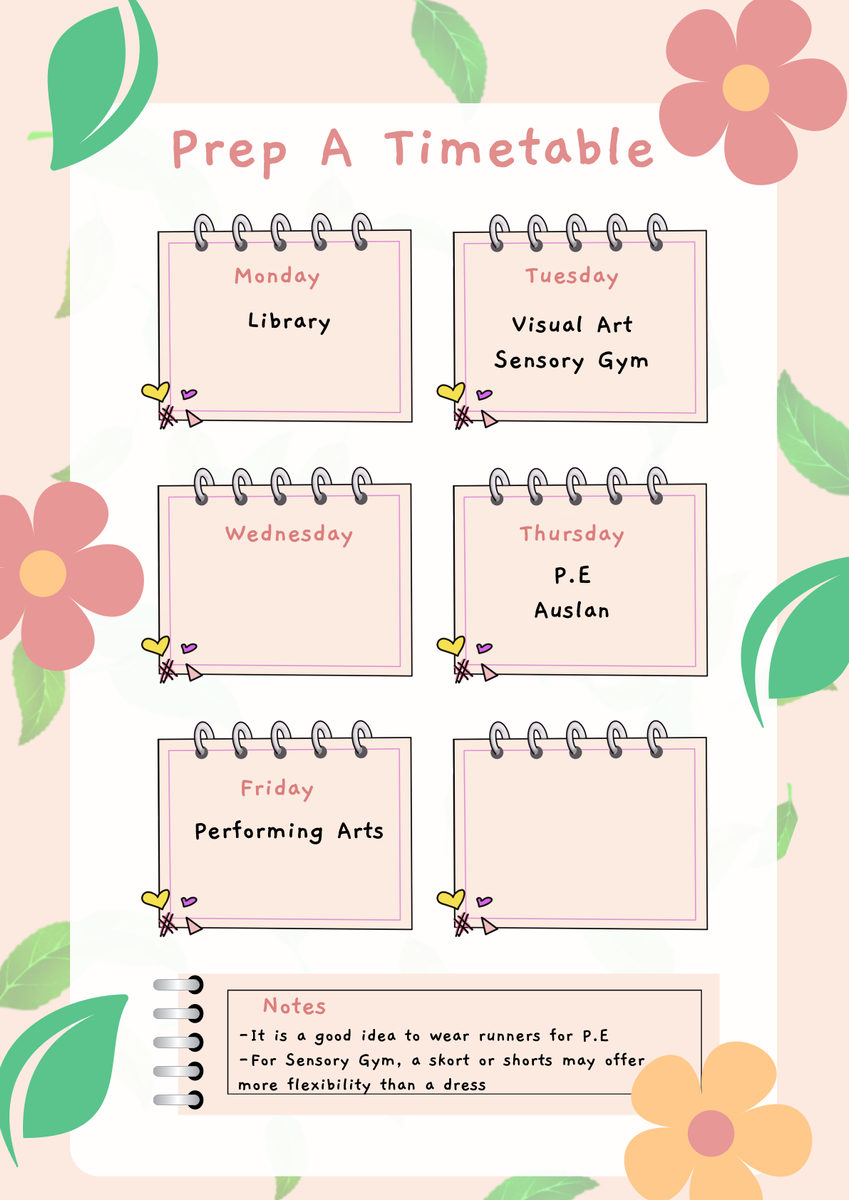
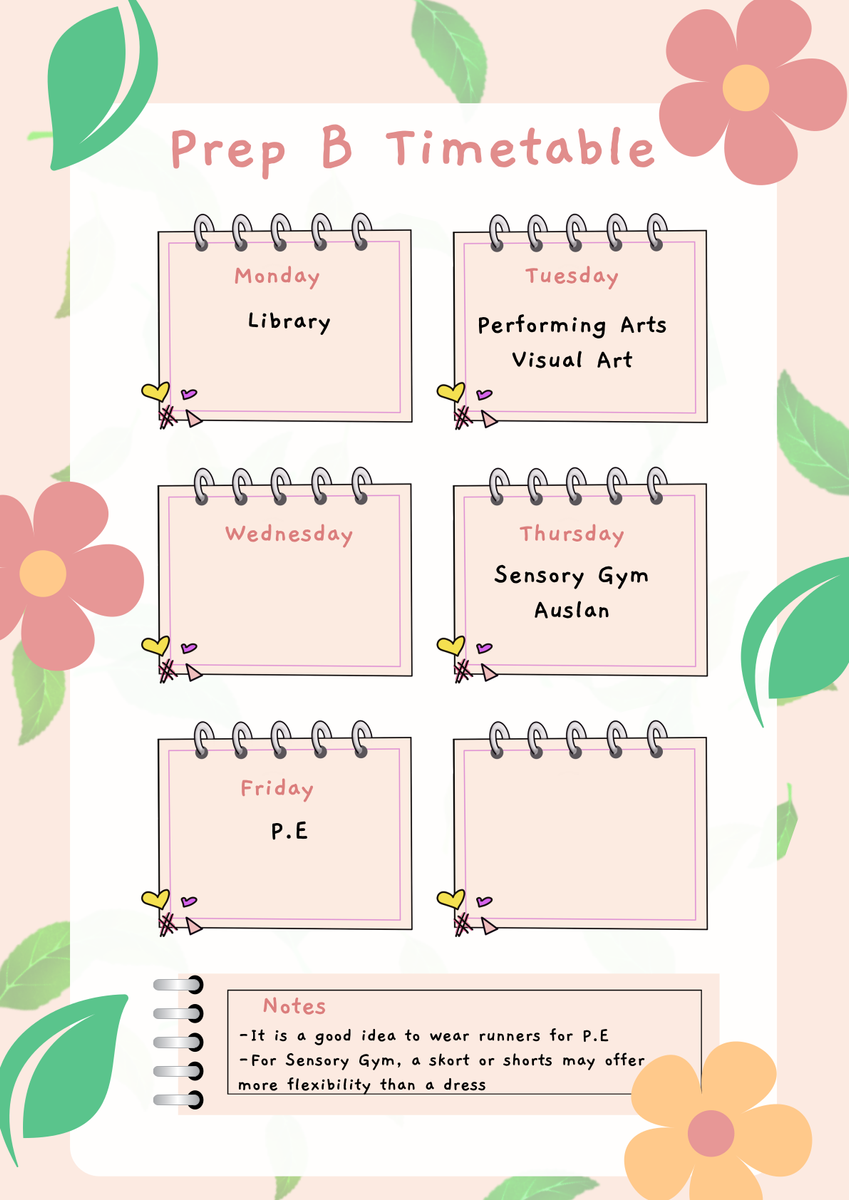
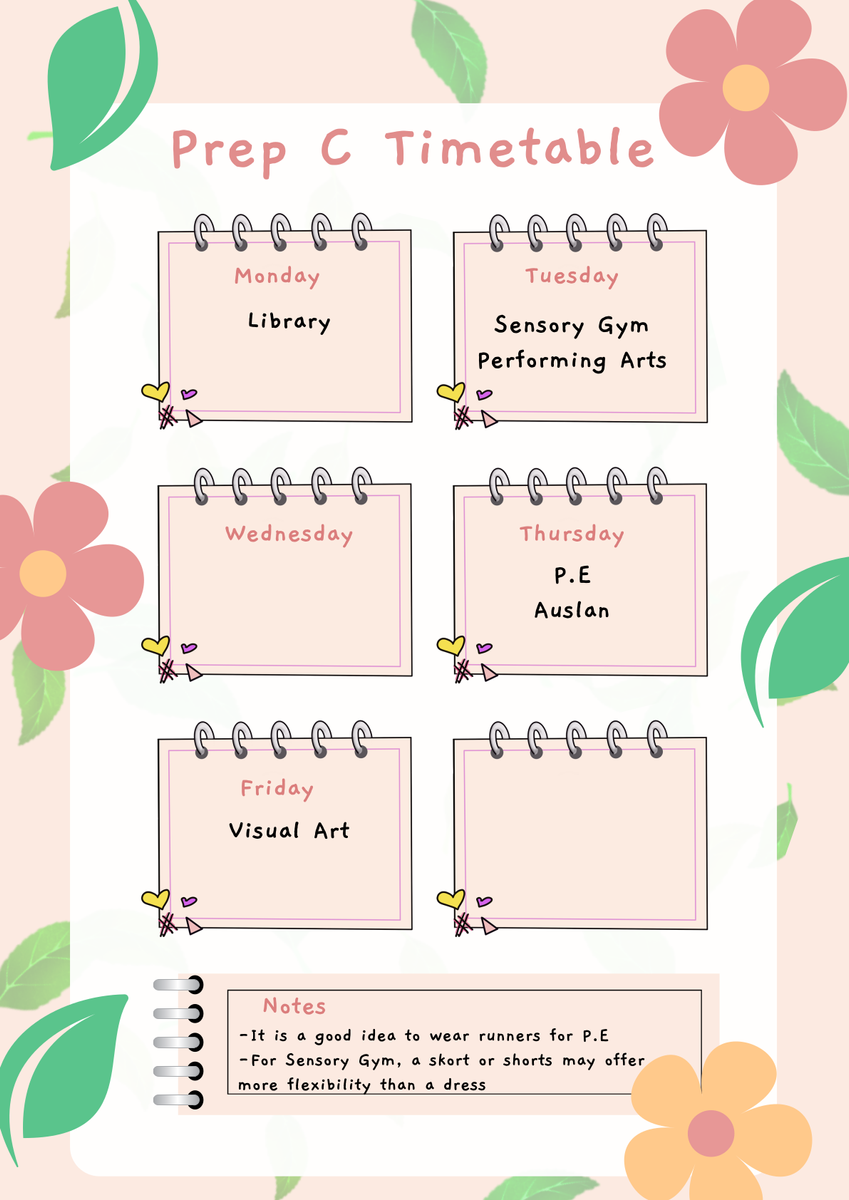



CURRICULUM
📚 Phonemic awareness: reading and phonics
We’re learning about the letter R as an initial sound (as in rat) and then as a consonant cluster (as in drum). Students will explore the phoneme (the sounds it makes), the grapheme (how its written with correct formation), and the matching cued articulation action.
In addition, students will practise reading and writing CVC and CVCC/CCVC words using all the short vowels.
We’ll also review our Heart Words: the, and, I, a, is, as, to, do, of, see, he, be, me and learn the word from.
What can you do at home?
-Help your child read the take-home book, decodable passages, or CVC word cards from their book pocket together. **Aim for fluency by the second day of reading.
-Enjoy bedtime stories with your child to build vocabulary and a love for reading.
-If you're interested in learning about Cued Articulation, you can watch this helpful video by Jane Passey (the founder), where she explains and demonstrates each sound: Cued Articulation with Jane Passey
-Work through the optional UFLI home practice pages if you’d like some extra phonics practise at home.
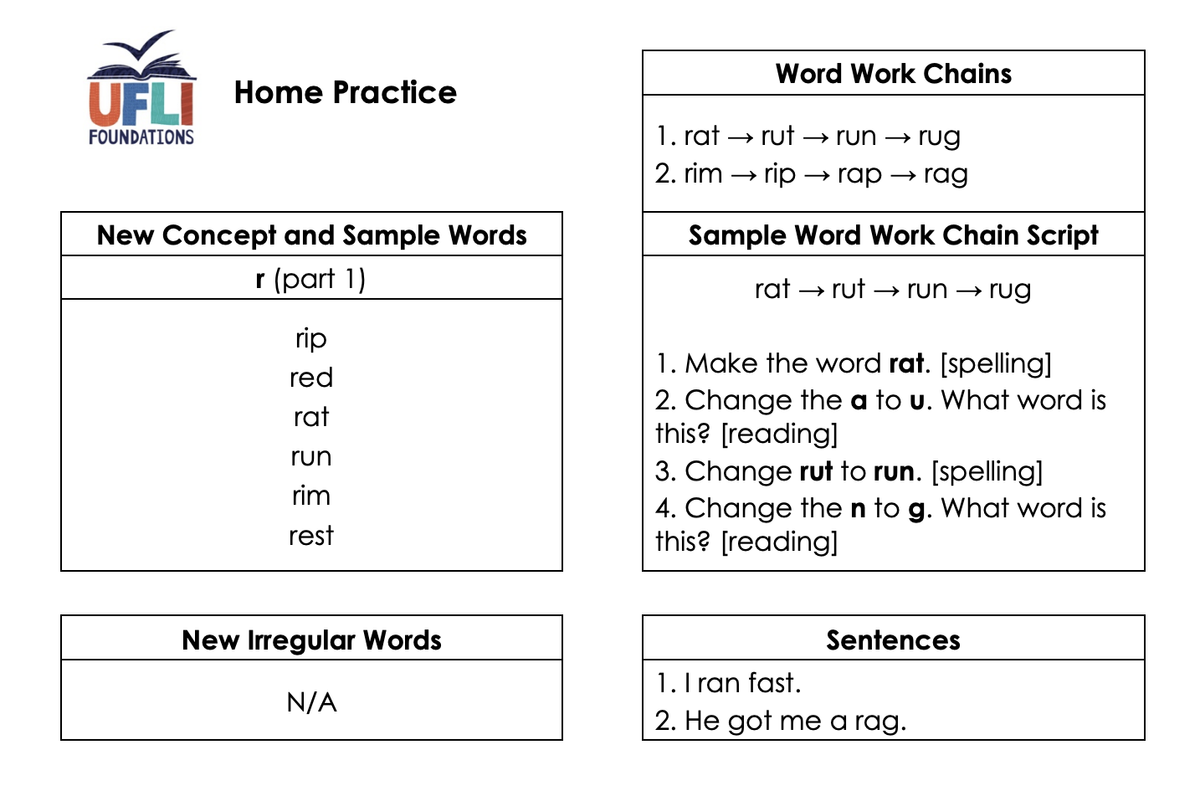
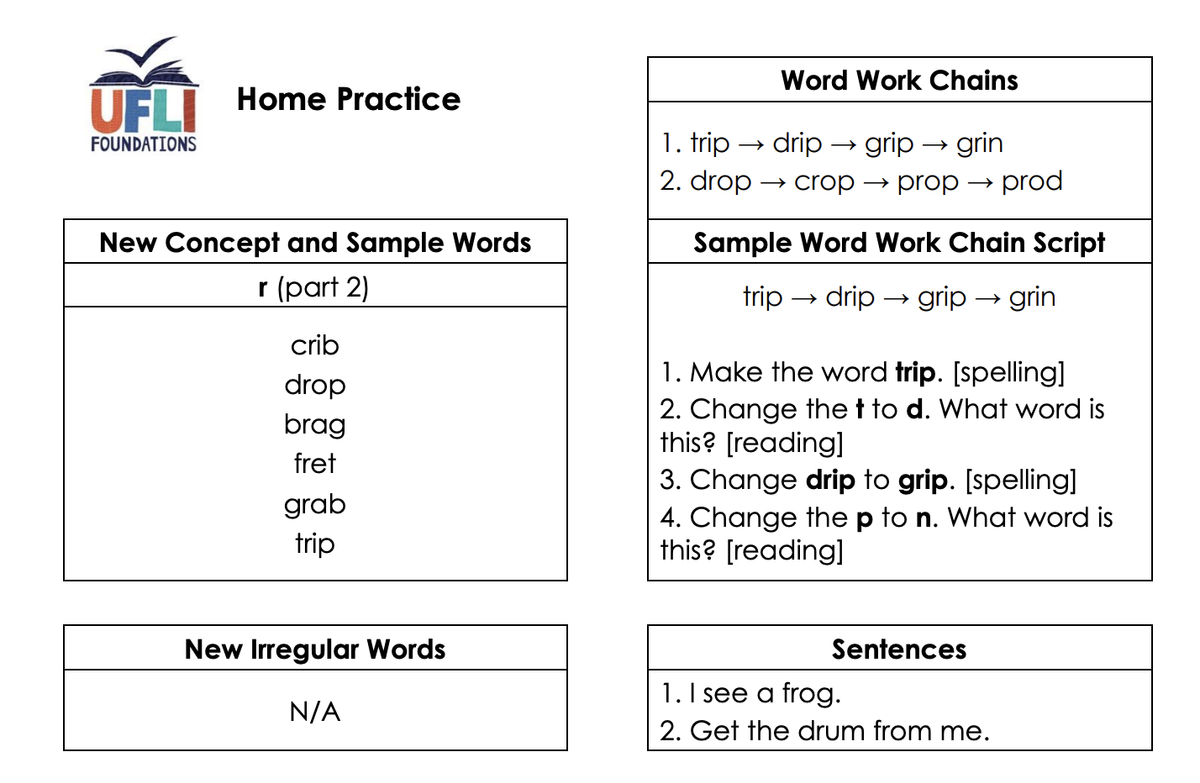


📝 Literature: reading responses and writing
This week is Reconciliation Week (27th May – 3rd June), and we are taking this special opportunity to explore stories and conversations about Country. We will be reading the beautiful book Welcome to Country by Aunty Joy Murphy and watching part of a Play School episode called Acknowledgement of Country.
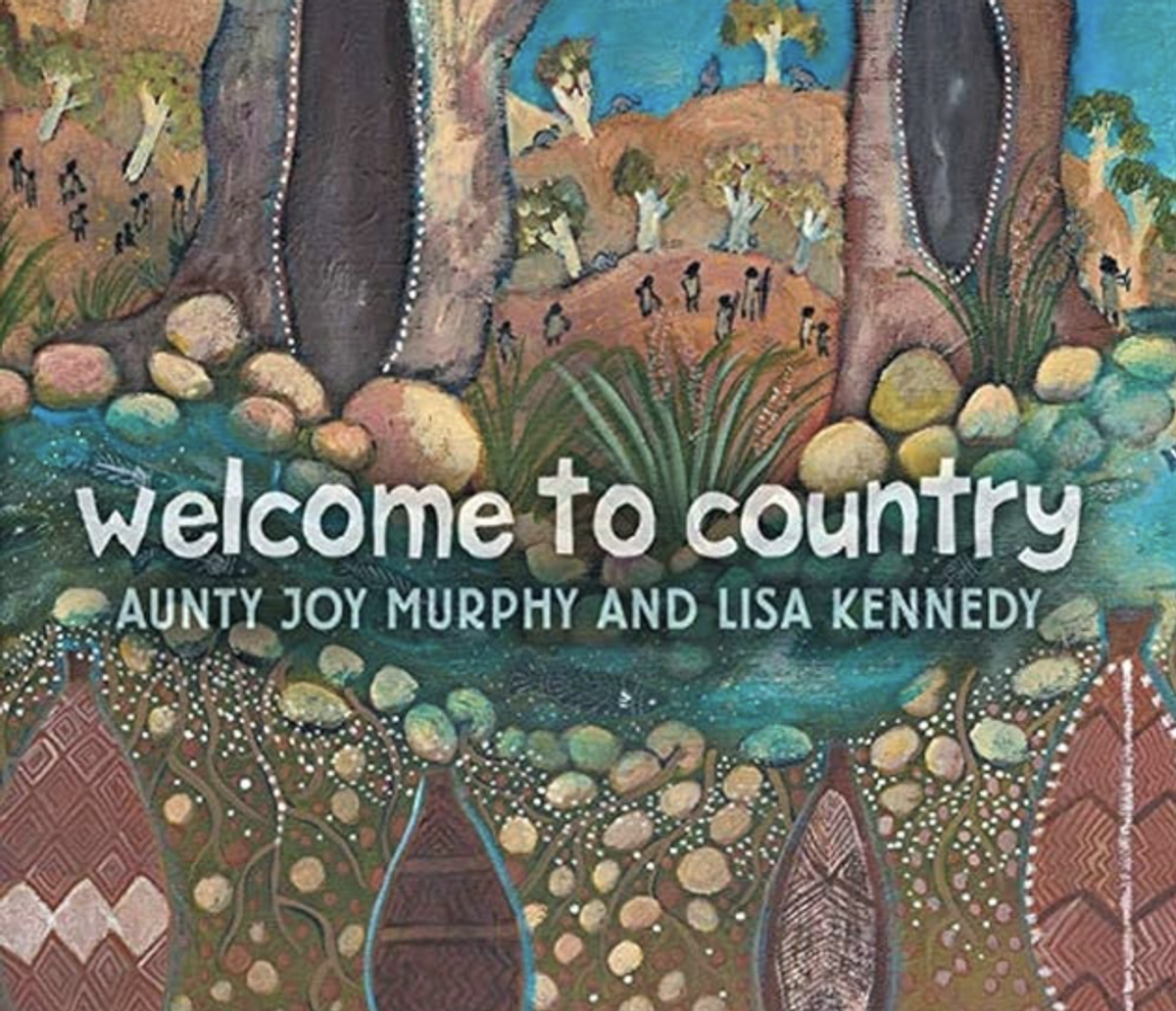

Together, we’ll learn about what an Acknowledgement of Country is, why it is important, and how we can respectfully acknowledge the Traditional Custodians of the land where we live, learn and play. Students will decorate their own classroom Acknowledgement and think deeply about what Country means, reflecting on the special things we see, hear and feel when we are on Country.
In Writing, we will be using the letters we’ve learnt so far to write sentences inspired by picture prompts and our imaginations. We’ll also be practising the correct formation of the letter R, while revising all the letters we've learned together this year.
What can you do at home?
-Play with things that develop fine motor skills like lego, playdough, drawing and building blocks.
-Help your child develop their pencil grip.
-Encourage your child to write simple sentences about a picture in a book or something they see around them.E.g. “The cat is on the mat.”
(Letters/sounds we know: A, M, S, T , P, F, I, N, O, D, C, U, G, B, E, K, H and R)
-Help your child sound out simple words when writing, reminding them to use the letter sounds they’ve learned.
🔢 Maths
We have an exciting week of maths planned. We'll be wrapping up our learning about patterns with some playful, hands-on activities that give students the chance to apply their thinking in creative ways.
Next, we’ll look at location and positional language, exploring words like inside, underneath and on top of to describe where objects are in relation to others. We will make a Leaf Guy, and students will have fun placing him in different spots around our outdoor spaces, taking photos on their iPads to capture his position.
What can you do at home?
-Play ‘position’ games using language like next to, behind, in front of, and underneath — for example, “Can you put the teddy on top of the chair?”
-Hide a small toy (maybe even a Mini Guy of your own!) around the house or garden and have your child describe where it is.
-Use mealtime or playtime as an opportunity to talk about where things are placed — “Your cup is next to your plate.”
-Go on a positional word scavenger hunt: “Find something inside something else” or “Stand behind the tree.”
🌏 CBL - Diversity
We will continue our important learning about Reconciliation Week. We will learn the words to our Acknowledgement of Country, helping us to show respect and connection to the land we learn and play on.
Students will also contribute a special leaf to our collaborative art installation, reflecting on what they can do now and next to support reconciliation in a meaningful, age-appropriate way.
It’s a wonderful opportunity for our students to think about kindness, respect and positive actions they can take within their community.
💻 Cyber Safety
In the lesson I Never Share my Password, students will learn about how passwords keep our profiles safe and why it is important to keep them secure.
💛 Wellbeing & School Wide Positive Behaviour (SWPBS)
Our SWPBS focus continues to be on the expectations of ‘Be Kind’, ‘Be Safe’, and ‘Be a Learner’. The students have been doing a wonderful job showing these positive behaviours around the school and have loved receiving tokens as recognition for their efforts. It’s been lovely to see how proud they are when they’re acknowledged for being kind friends, safe classmates, and enthusiastic learners.